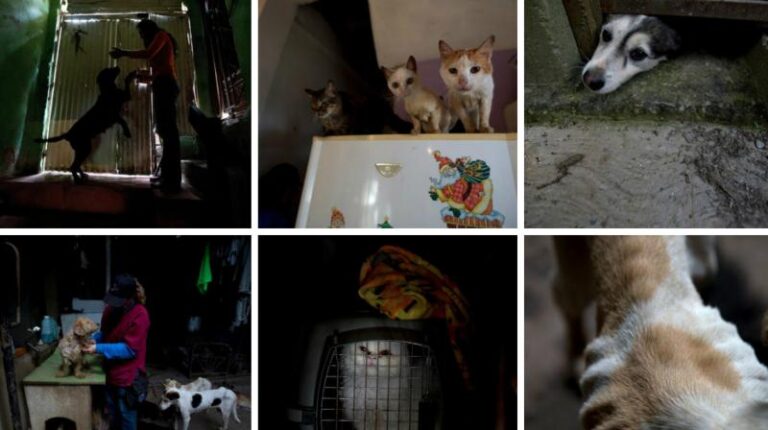Hyderabad: The Global Union of Animal Welfare Experts, in collaboration with Mars, has released the results of the largest-ever international study on pet homelessness. The initiative, dubbed the Pet Homelessness Project, aims to understand the extent of pet homelessness across 20 markets and the underlying factors contributing to it. The report reveals that one in three pets around the world is homeless, with a total of nearly 362 million animals waiting to be adopted. The situation is particularly dire in India, where 69% of all dogs and cats lack permanent homes. Of these, 60.5 million pets roam the streets and 8.8 million are housed in shelters awaiting adoption. These findings confirm the urgent need for comprehensive efforts to address pet homelessness around the world, and highlight the importance of promoting adoption and implementing effective animal welfare policies. is emphasized.
69.3 million (69%) dogs and cats are homeless in India, making up approximately 19% of the world's homeless pet population.
● India has 60.5 million (71%) dogs living on the streets or in shelters, making up about 39% of the world's homeless dog population.
● 8.8 million cats live on the streets or in shelters, accounting for 4.25% of the world's homeless cat population.
● Although adoptions from shelters are still low, 53% of urban and rural respondents said they would recommend adopting from shelters in the future.
● 47% and 28% of respondents are considering becoming dog and cat owners, respectively.
● The most common route for pet ownership in this country is through friends and relatives, with dogs (28%) and cats (30%) coming from these sources.
○ 33% of rural respondents have adopted a pet from a friend or family member
○ 32% of urban respondents rely on pet stores to take their pets home
India Pet Homelessness Report interviews 2,565 experts, including individuals from urban (1,402) and rural (1,163) areas, and pet experts from nine metropolitan and non-metropolitan areas Did. Salil Murthy, Managing Director, Mars Petcare India, said the report is a valuable resource that provides actionable insights and highlights the importance of addressing pet homelessness. did. Despite low shelter adoption rates, the report found that 53% of respondents would be willing to adopt a pet from a shelter in the future, reinforcing the human-animal bond. It represents an opportunity to strengthen. Mars Petcare India is actively working to raise awareness about pet adoption, forging partnerships with animal welfare NGOs and leveraging digital solutions to increase adoption rates through NGOs. Data from India highlights certain themes that require attention and highlights the importance of collective action in creating a more caring and inclusive environment for pets.
Prevent unplanned pets: Stray pet populations, which can reproduce rapidly, are a big part of the problem. One unneutered homeless pet can quickly spawn many more. Reducing uncontrolled or unplanned breeding is an important approach to reducing pet homelessness.
Ensure continuity of care: Helping to provide more homeless pets with responsible, loving homes or the sustained human care they need in their communities is a fundamental step in addressing pet homelessness. With 47% of respondents considering bringing home a dog and 28% considering bringing home a cat, more people are interested in owning a pet. It is important to receive this information and turn your interest into action. Interestingly, the project revealed that approximately 13% of dog and cat owners found their pets on the street.
Keep pets in the house: Pets are lost more often than many people realize, leading to a notable, if unintentional, increase in homeless pets. Pets are at risk of homelessness due to abandonment and casual pet ownership where pets become lost or lost. 9% of respondents said they lost a pet dog, while 6% said they lost a pet cat.
The project's findings reveal some worrying trends. A significant percentage of respondents are considering relinquishing their pet ownership, especially dogs and cats. To combat this problem, Mars has generously donated $500,000 to Humane Society International (HSI) to fund projects in India, South Africa, and Mexico that address pet homelessness with data-driven interventions. provided.
Alokparna Sengupta, Managing Director of HSI/India, highlighted the dire situation of street animals in India and thanked Mars for its support. HSI/India aims to humanely manage stray dog populations through government-supported programs while fostering community involvement. Mars' contributions have already facilitated major advances, including improving the treatment of sick animals and surgical procedures. Both organizations are committed to expanding efforts to improve the welfare of dogs and cats nationwide.
Through this partnership, Mars and HSI/India aim to create a safer and more caring environment for animals and communities.


